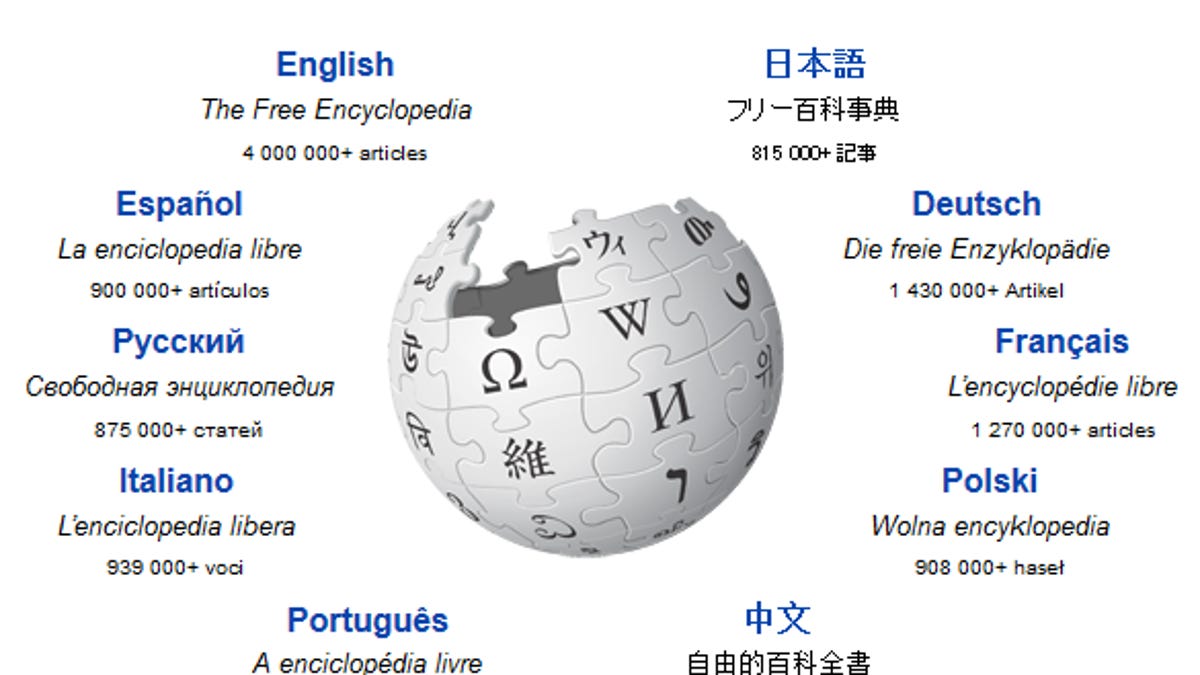Wikipedia shutters 250 accounts in probe of paid edits
Online encyclopedia reveals it banned hundreds of accounts as part of an investigation into "suspicious edits and sockpuppetry" that promoted organizations or products.

Wikipedia has shut down more than 250 editing accounts as part of an investigation into "suspicious edits and sockpuppetry" that promoted organizations or products.
"It looks like a number of user accounts -- perhaps as many as several hundred -- may have been paid to write articles on Wikipedia promoting organizations or products," a clear violation of the site's policies, Wikimedia Foundation Executive Director Sue Gardner wrote in a blog post Monday. "As a result, Wikipedians aiming to protect the projects against non-neutral editing have blocked or banned more than 250 user accounts."
The revelation follows reports earlier this month in The Daily Dot and Vice that described an increase in paid edits on the nonprofit site by sockpuppets, or online identities used for purposes of deception. The reports link the rise to a service called Wiki-PR, which bills itself as "Wikipedia writers for hire."
The company's services page promises clients a "page management service" so that their Wikipedia presence isn't "left up to chance":
Trying to get on Wikipedia for the first time? Or has Wikipedia created a page that you want edited? We can help. Our staff of 45 Wikipedia editors and admins helps you build a page that stands up to the scrutiny of Wikipedia's community rules and guidelines. We respect the community and its rules against promoting and advertising. Don't leave your Wikipedia page up to chance. Don't get caught in a PR debacle by editing your own page. Ensure your Wikipedia page is 100% accurate with our Page Creation & Editing service.
Let's face it: You can't monitor every edit made to your Wikipedia page. That's why we created Page Management service. We've built technology to manage your page 24 hours a day, 365 days a year. Plus, you'll have a dedicated Wikipedia project manager that understands your brand as well as you do. That means you need not worry about anyone tarnishing your image - be it personal, political, or corporate.
Former Wiki-PR clients told the Daily Dot that they paid between $500 and $1,000 to the company for creation of a Wikipedia page, and $50 a month for monitoring any changes made to the page and resurrection of any material deleted during subsequent edits.
Wikipedia's Terms of Use expressly forbid "attempting to impersonate another user or individual, misrepresenting your affiliation with any individual or entity, or using the username of another user with the intent to deceive."
Wiki-PR defended itself as a research firm whose primary goal is improving Wikipedia.
"Our people do a lot of work for free on Wikipedia, just because it's interesting and helpful to the Wikipedia community," Wiki-PR spokesperson Jordan French told CNET in an e-mail that admitted doing paid editing on the site. However, "we say 'no' to clients frequently...We routinely temper client expectations on promotionalism and advertising and spend boundless time explaining Wikipedia's editorial standards to those who might not be familiar with them," French wrote.
Wiki-PR also accused Wikipedia in being overzealous in its investigation.
"Senior Wikipedia administrators closed the sockpuppet investigation after concluding that we were paid editors paying other editors," French wrote. "Volumes of Wikipedia pages we didn't work on were wrongly swept into that investigation. We do pay hundreds of other editors for their work -- they're real people and not sockpuppets."
Gardner wrote that the practice of paid editing violates the site's core principles.
"Unlike a university professor editing Wikipedia articles in their area of expertise, paid editing for promotional purposes, or paid advocacy editing as we call it, is extremely problematic," Gardner wrote. "We consider it a 'black hat' practice. Paid advocacy editing violates the core principles that have made Wikipedia so valuable for so many people."
Other online communities have been plagued by the presence of commercially submitted content. The problem was so bad on Yelp that the user-reviews site announced an initiative last year to root out companies that have made "significant attempts to pay for reviews."
Updated at 7:20 p.m. PT to include Wiki-PR comments.
(Via Ars Technica)

